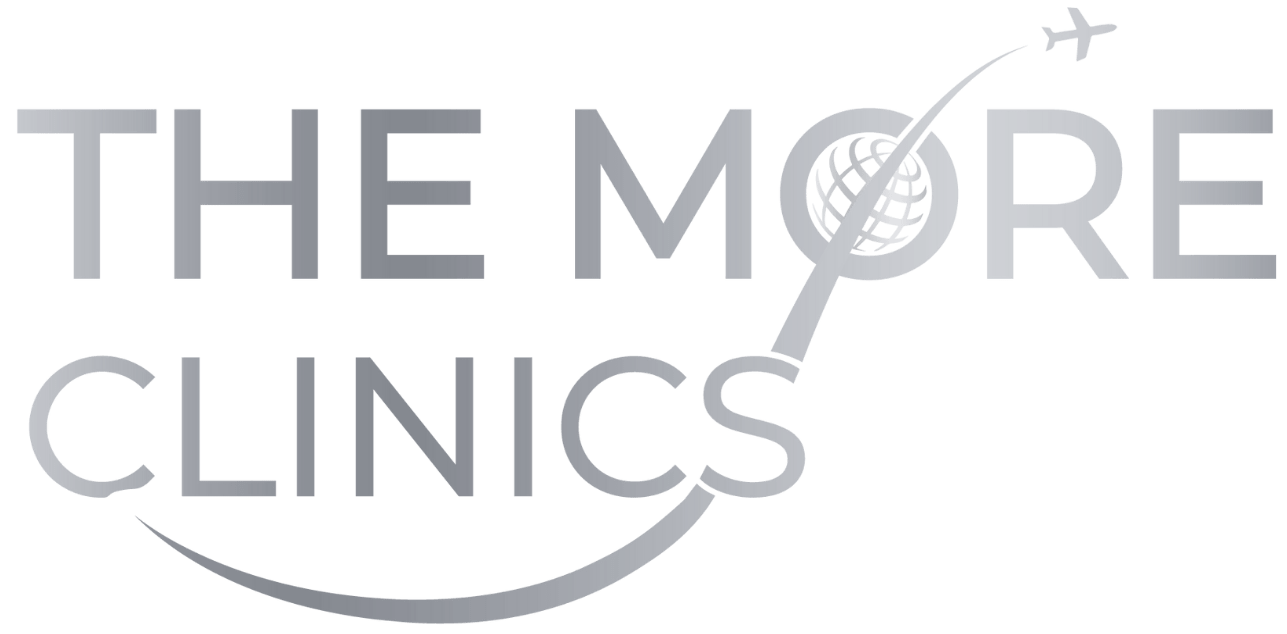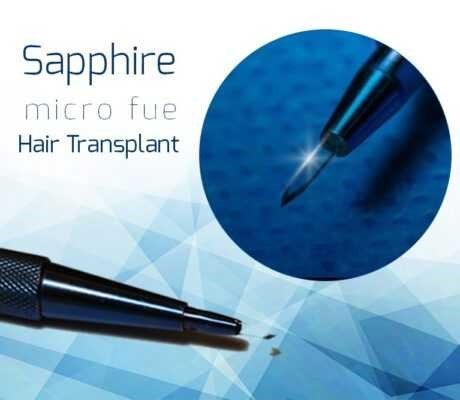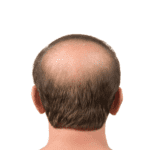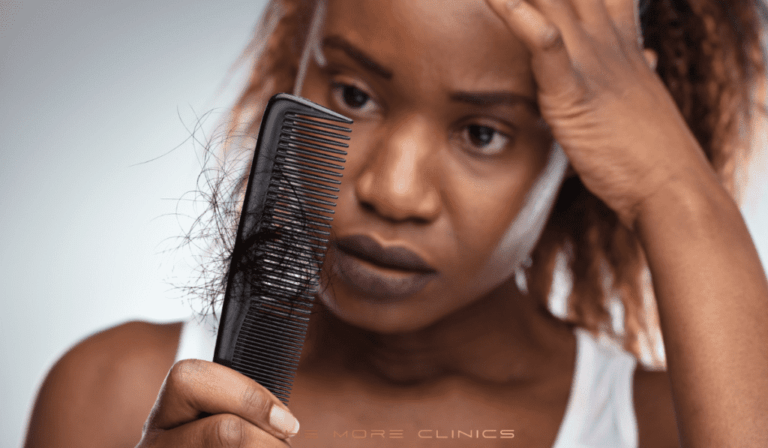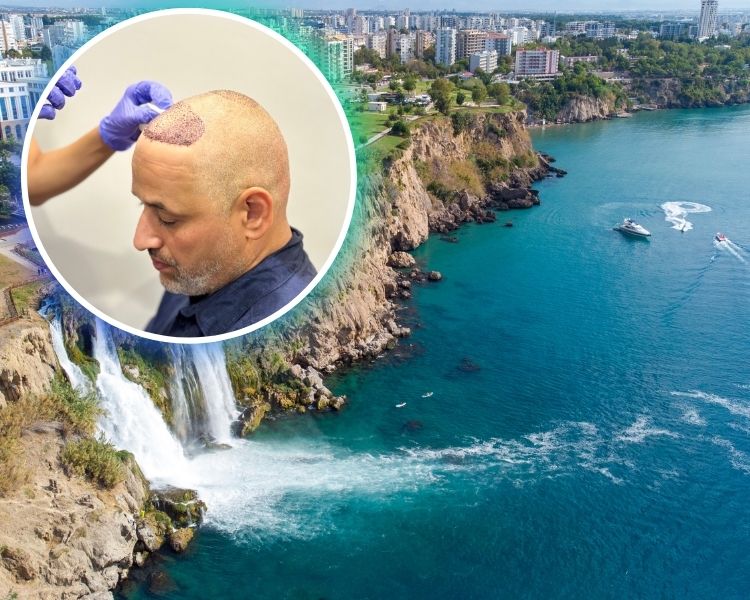Understanding the Process and Benefits of Hair Transplant in Antalya, Turkey
Understanding Hair Transplant in Antalya, Turkey: Discover the process, benefits, and top clinics for a flawless hair restoration experience in this stunning Mediterranean city.
- Introduction to Hair Transplants: An Overview
- Why Choose Antalya, Turkey for Your Hair Transplant?
- Types of Hair Transplant Procedures Available
- Understanding the FUE (Follicular Unit Extraction) Technique
- The FUT (Follicular Unit Transplantation) Method Explained
- Pre-Procedure Consultation: What to Expect
- The Hair Transplant Procedure: Step-by-Step
- Post-Procedure Care: Ensuring Optimal Results
- Cost of Hair Transplant in Antalya: A Comprehensive Breakdown
- Patient Success Stories and Testimonials
- [Jane’s Transformational Journey](#jane’s-transformational-journey)
- [Mark’s Confidence Boost](#mark’s-confidence-boost)
- [Emily’s Natural Results](#emily’s-natural-results)
- [Tom’s Experience](#tom’s-experience)
- Our Success Stories in Numbers
- Community words from our Happy Patients
- Top Clinics and Surgeons in Antalya
- Travel and Accommodation Tips for International Patients
- Risks and Considerations: Making an Informed Decision
- Long-Term Care: Maintaining Your Hair Transplant
- Frequently Asked Questions About Hair Transplants in Antalya
- 1. What is the Average Cost of a Hair Transplant in Antalya?
- 2. How Long Does the Procedure Take?
- 3. Is a Hair Transplant Painful?
- 4. How Long is the Recovery Period?
- 5. Are the Results Permanent?
- 6. Can Anyone Get a Hair Transplant?
- 7. Are There Any Side Effects?
- 8. When Will I Start Seeing Results?
- 9. Why Choose Antalya for a Hair Transplant?
- 10. What Should I Consider When Choosing a Clinic?
- Conclusion: Achieving the Best Results for Your Hair Journey
Introduction to Hair Transplants: An Overview
When we talk about hair transplants, we’re diving into a fascinating world of medical innovation that has helped millions reclaim their hair and confidence. Hair transplants are a popular solution for those dealing with hair loss, and it’s all about moving hair follicles from one part of the body (usually the back or sides of the scalp) to areas that are thinning or bald.
What is a Hair Transplant?
A hair transplant involves several key steps:
- Consultation: We first meet with a specialist to discuss our hair loss patterns, medical history, and expectations.
- Planning: A personalised plan is created, taking into account the number of grafts needed and the donor area’s condition.
- Extraction: Hair follicles are carefully extracted from the donor area. This can be done using techniques like Follicular Unit Extraction (FUE) or Follicular Unit Transplantation (FUT).
- Preparation: The extracted follicles are examined and prepared for implantation.
- Implantation: The prepared follicles are implanted into the recipient area, following the natural hair growth pattern.
Benefits of Hair Transplants
Opting for a hair transplant comes with various advantages:
- Permanent Solution: Unlike temporary fixes, hair transplants offer a long-lasting solution.
- Natural Look: Since our own hair is used, the results are super natural.
- Boost in Confidence: Regaining a full head of hair can significantly improve our self-esteem.
- Minimal Downtime: Recovery time is typically short, allowing us to get back to our routine quickly.
Why Antalya, Turkey?
Antalya has become a hotspot for hair transplants and for good reasons:
- Skilled Surgeons: The region is home to highly qualified and experienced surgeons.
- Affordable Prices: The cost is usually lower compared to Western countries, without compromising on quality.
- Beautiful Destination: Combining medical treatment with a vacation in a stunning location like Antalya is an added bonus.
Why Choose Antalya, Turkey for Your Hair Transplant?
When thinking about a hair transplant, location can make a world of difference, and Antalya, Turkey, stands out for many reasons. It’s not just the beautiful beaches and sunny weather – there’s so much more to this amazing city.
- World-Class Clinics
Antalya boasts a range of top-notch clinics equipped with state-of-the-art technology. Our clinics employ experienced surgeons who specialise in hair transplants. You know you’re in good hands with professionals known globally for their expertise. - Affordable Prices
Let’s talk numbers. The cost of hair transplants in Antalya is much lower than in many Western countries. We’re talking up to 70% savings without compromising on quality. This affordability makes it accessible for more people to regain their confidence with a full head of hair. - Holiday Feel
Why not combine your treatment with a holiday? Antalya is a stunning destination with rich history, beautiful beaches, and vibrant nightlife. While recovering, you can enjoy the best of what the Mediterranean has to offer. - Comprehensive Packages
Most clinics offer all-inclusive packages that take care of everything from airport transfers to hotel accommodations. It’s a stress-free experience. They typically cover consultation, surgery, post-op care, and sometimes even sightseeing tours. - High Success Rates
Our clinics report high success rates due to specialised techniques like FUE (Follicular Unit Extraction). The combination of skill and technology ensures you get the best possible results, and we make sure you’re delighted with your new look. - Medical Tourism Expertise
Antalya is a hub for medical tourism. We’ve got a well-established infrastructure tailored to international patients. Language barriers? Not a problem. Many clinics have multilingual staff to help with every step. - Aftercare Services
Post-operative care is crucial, and clinics in Antalya offer excellent aftercare services. Regular check-ups and personalised care plans ensure a smooth recovery. We’ll guide you through the healing process.
Choosing The More Clinics Antalya for your hair transplant is not just a medical decision; it’s embarking on a unique experience. Trust us, you’ll find it hard to say no.
Types of Hair Transplant Procedures Available
When it comes to hair transplants in Antalya, Turkey, we’ve got several options to choose from. Let’s dive into the most common types you’ll encounter.
Follicular Unit Extraction (FUE)
FUE is a popular choice among many of us. In this method:
- Individual hair follicles are extracted from the donor area.
- These follicles are then implanted into the thinning or balding areas.
- It’s less invasive, with minimal scarring compared to older techniques.
- Recovery time is generally quick—most of us can get back to our usual routine within a few days.
Follicular Unit Transplantation (FUT)
FUT, also known as strip harvesting, is another widely used method. Here’s how it works:
- A strip of scalp is removed from the donor area.
- The individual follicles are then dissected from this strip.
- These follicles are transplanted to the thinning or bald areas.
- It might leave a linear scar, but it’s easily concealed by hair.
Direct Hair Implantation (DHI)
DHI is the latest development and comes with its unique benefits:
- Similar to FUE, but uses a specialised tool that allows for simultaneous extraction and implantation.
- Offers more precision and control over the angle, direction, and depth of hair placement.
- Minimises the time the follicles are out of the skin, increasing their survival rate.
- Lesser downtime compared to other methods—perfect for those of us leading a busy life.
Robotic Hair Transplant
For those of us who love the idea of cutting-edge technology, robotic hair transplants offer an exciting option:
- Uses a robotic arm to extract follicles with unparalleled precision.
- The robot can assess and select the best follicles to ensure high-quality grafts.
- Reduces the risk of human error and can be quicker than traditional methods.
Picking the right procedure depends on our hair type, the extent of hair loss, and personal preferences. Consulting with a certified specialist in Antalya will help us determine the best approach for achieving the desired results.
Understanding the FUE (Follicular Unit Extraction) Technique
Follicular Unit Extraction, or FUE, is one of the most popular hair transplant techniques. It’s pretty high-tech and much less invasive than older methods. Think of it as a cutting-edge way to get your hair back without going through a lot of pain or downtime.
First off, during the FUE procedure, we start by shaving the donor area, usually the back of your head. This makes it easier to access individual hair follicles. Not going to lie, the idea of a shaved patch might sound a bit jarring, but hang in there; it’s all part of the process.
Afterwards, the surgeon uses a micro-punch tool, which is super tiny, to carefully extract individual hair follicles. These tools are so small that they cause minimal trauma to the surrounding skin—definitely a win in our book.
Why FUE is Awesome:
- Minimal Scarring: One of the coolest benefits of the FUE technique is that it leaves almost no visible scarring. Unlike the strip method, where a linear scar is often inevitable, FUE’s tiny little marks heal up quite nicely.
- Quick Recovery Time: Thanks to its minimally invasive nature, you can expect a much quicker recovery time. We’re talking days, not weeks!
- Natural-Looking Results: FUE allows for more precise placement of hair follicles, giving us natural-looking hairlines and better overall aesthetic results.
- Flexibility: Whether you’re just looking to fill in a tiny bald spot or want a more extensive hair restoration, FUE has got you covered.
The Process in a Nutshell:
- Consultation: First, we sit down and chat about your hair goals and the best approach.
- Donor Area Prep: Shave the donor area and make it ready for extraction.
- Extraction: Using the micro-punch tool, carefully extract the hair follicles.
- Graft Placement: These follicles are then meticulously placed in the desired areas.
- Recovery: Take it easy for a bit and let your new hair settle in.
Each graft can take a while to extract and place, so think of it as a day-long affair. But hey, good things take time, right?
And there you have it! FUE in a nutshell. It’s all about precision and natural results, making it a top pick for many people looking to restore their hair.
The FUT (Follicular Unit Transplantation) Method Explained
So, let’s dive into the nitty-gritty of FUT, or Follicular Unit Transplantation. When considering hair transplants, understanding the different methods is crucial, and FUT is a classic choice.
What is FUT?
To put it simply, FUT involves removing a thin strip of skin from the back of our scalp, where hair usually grows more robust and thicker. This strip is then dissected into tiny grafts containing about 1-4 hairs each. Finally, the grafts are transplanted into the thinning or balding areas.
How Does the Process Go?
- Preparation
- First, our surgeon will clean our scalp and inject it with a local anaesthetic.
- Don’t worry, we won’t feel a thing!
- Strip Removal
- A thin strip of scalp, typically 1 to 1.5 centimeters wide, is cut out.
- Our hair in this area is usually dense and less susceptible to balding, making it perfect for transplantation.
- Dissecting the Strip
- Next, this strip is divided into grafts. Think of it like slicing a loaf of bread into smaller pieces.
- These grafts may contain anywhere from 1 to 4 hair follicles.
- Preparing Recipient Sites
- Tiny holes are made in the thinning or bald areas.
- Precision is key here. This part ensures our new hair will look natural and blend seamlessly with our existing hair.
- Inserting Grafts
- Each graft is carefully placed into the recipient site holes.
- It’s an intricate process that demands a steady hand and a good eye for detail.
The Benefits of FUT
When opting for FUT, we get certain advantages that are worth noting:
- Higher Yield: Since the method allows for the removal of a larger number of follicles in one go, it’s ideal for those needing more extensive hair restoration.
- Natural Growth: The transplants are our own hair, ensuring a natural look as it grows back.
- Permanent Solution: Once the hair follicles are transplanted, they continue to grow naturally in the new location, offering a long-lasting solution to hair loss.
Points to Keep in Mind
However, there are a few things we should consider:
- Linear Scar: We’ll have a linear scar at the donor site. Luckily, it’s usually easily hidden by our remaining hair.
- Recovery Time: The recovery period may include some discomfort and requires a bit more downtime compared to other methods.
There you have it, a comprehensive look at what FUT entails. Understanding this method helps in making an informed decision when considering hair transplants.
Pre-Procedure Consultation: What to Expect
Before we dive into the hair transplant procedure, we first kick things off with a pre-procedure consultation. This is a crucial step where we get to know you, your expectations, and your medical history. Here’s what typically happens during this initial meeting:
- Medical History: We’ll ask you about any past medical conditions, surgeries, and current medications. This helps us understand if you’re a suitable candidate for the procedure.
- Hair Analysis: We take a close look at your hair and scalp to assess the extent of hair loss and the quality of your donor area. This helps us determine the best technique for your needs.
- Discussion of Goals: We’ll take the time to understand what you hope to achieve with the hair transplant. Whether it’s improving hair density or addressing bald spots, your goals guide our approach.
- Procedure Explanation: We’ll explain the hair transplant process in detail, including the techniques we use and what you can expect at each stage. We want you to feel fully informed and comfortable.
- Pictures and Measurements: We might take some photos of your hair and scalp for our records. This helps us track your progress and measure the success of the transplant.
- Customised Plan: Based on all the gathered info, we’ll craft a personalised treatment plan for you. This includes the number of grafts needed, technique chosen, and an estimated timeline.
- Q&A Session: We encourage you to ask any and all questions you have. No question is too small; we want you to be completely at ease.
- Instructions: We’ll give you specific pre-procedure instructions to follow. These might include guidelines on eating, drinking, and medications to avoid before the procedure.
We know the pre-procedure consultation can feel a bit overwhelming, but remember, we’re here to guide you through every step of the way.
The Hair Transplant Procedure: Step-by-Step
Let’s break down the hair transplant process so you know what to expect. It might sound complex, but don’t worry; we’ve got you covered.
1. Initial Consultation
We start with an initial consultation. This is where we assess your hair loss pattern, discuss your medical history, and figure out your goals. We’ll take some photos and maybe even a scalp biopsy to make sure you’re a good candidate.
2. Designing the Hairline
Next, we design the hairline. This is a crucial step because we want it to look natural and suit your face. We’ll sketch out where the new hair will go and make sure you’re happy with the plan.
3. Donor Area Preparation
Then, we prep the donor area, usually the back or sides of your head where the hair is thickest. We trim the hair short to make it easier to extract the follicles. Local anaesthesia is used so you won’t feel anything.
4. Extraction of Hair Follicles
Now comes the extraction. We use either Follicular Unit Extraction (FUE) or Follicular Unit Transplantation (FUT) methods. FUE involves individual follicle extraction, while FUT involves removing a strip of scalp. Both have their pros and cons, which we’ll discuss with you.
5. Preparing the Grafts
After extraction, we prepare the hair follicles for transplantation. The follicles are examined under a microscope to ensure they’re healthy. We also sort them based on the number of hairs they contain.
6. Creation of Recipient Sites
Next up, creating the recipient sites! We make tiny incisions in the balding or thinning areas of your scalp. The aim here is to match the angle, direction, and density of your natural hair.
7. Implanting the Hair Follicles
Now, we implant the hair follicles into the recipient sites. This is a meticulous process because we want to ensure each follicle is placed just right. This part can take several hours, but it’s worth it.
8. Post-Procedure Care
After the procedure, we’ll walk you through the aftercare steps. You’ll need to be gentle with your scalp for a while and avoid strenuous activities. We’ll also prescribe medications to prevent infection and promote healing.
9. Follow-Up Appointments
Finally, we’ll schedule follow-up appointments to monitor your progress. It takes a few months to see the initial results, and up to a year for the full effect. We’ll be with you every step of the way to answer any questions you have.
With these steps, we aim to make your hair transplant experience in Antalya smooth and successful.
Post-Procedure Care: Ensuring Optimal Results
Alright, folks, we’ve made it through the procedure! Now, let’s talk about what we need to do next. Post-procedure care is crucial to get the best results from our hair transplant in Antalya. Here are some key steps to follow:
Immediate Aftercare
- Protect the Area:
- Avoid touching or scratching your scalp.
- Wear a loose cap to shield the area from dust and sun exposure.
- Sleeping Position:
- Keep your head elevated with pillows to reduce swelling.
- Try to sleep on your back to avoid any friction.
- Medication:
- Take prescribed antibiotics to prevent infections.
- Use pain relievers as recommended.
Days 1-7
- Gentle Cleaning: Wash your hair with a mild shampoo recommended by your doctor. Gently pat it dry; don’t rub.
- Avoid Physical Activities: Skip the gym and heavy lifting. This helps minimise sweating and potential trauma to your scalp.
Weeks 2-4
- Watch for Infections: Look out for signs like excessive redness or pus. Contact your doctor immediately if you notice anything unusual.
- No Direct Sunlight: Avoid direct sun exposure on the treated area. If you must go out, wear a hat or use sunscreen.
Months 1-3
- Hair Growth: Don’t freak out if some hair starts falling out. This is normal and part of the process.
- Gentle Hair Care Routine: Stick to mild shampoos and conditioners. Avoid heavy styling products and heat tools.
Long-Term Care
- Follow-Up Appointments: Attend all your follow-ups to monitor progress and address any concerns.
- Healthy Lifestyle: Eating a balanced diet and staying hydrated helps in the overall health of your new hair.
Things to Avoid
- Smoking and Alcohol: Try to steer clear of these as they can impede healing and hair growth.
- Hair Dye: Hold off on colouring your hair for at least 6 months to avoid any damage to the new grafts.
- Swimming: Keep away from pools and saunas for the first few weeks to prevent infections.
By sticking to these steps, we can ensure that our hair transplant journey is smooth and successful. Let’s give those new locks the best chance to thrive!
Cost of Hair Transplant in Antalya: A Comprehensive Breakdown
When we think of getting a hair transplant in Antalya, cost is a big factor to consider. Let’s break it down so we know exactly what to expect.
Main Cost Components
- Surgeon’s Fee
- The expertise of the surgeon plays a massive role.
- Top-notch surgeons may charge more.
- Anaesthesia
- Necessary for a pain-free experience.
- Usually included in the package cost.
- Clinic Facilities
- A higher standard of clinic facilities can bump up the price.
- Luxurious amenities might be available at a premium.
- Technique Used
- FUT vs. FUE: Each has its costs.
- FUE is often pricier due to the meticulous effort.
- Graft Count
- Number of grafts directly influences the cost.
- More grafts = higher total price.
Additional Costs
- Pre-op Tests
- Sometimes required to ensure you’re fit for surgery.
- Usually a small fee, but it adds up.
- Post-op Medications
- Helps speed up recovery.
- Prescription meds aren’t always included in the package.
- Travel and Accommodation
- If we’re coming from abroad, flights and hotels will be an extra expense.
- Some clinics offer all-inclusive packages to minimise hassle.
Currency Exchange Rates
- Favourable Exchange Rates
- For many of us paying in USD or EUR, the Turkish Lira can make the overall cost lower.
- Keep an eye on currency fluctuations for the best deal.
Package Deals
- Clinics often offer all-inclusive packages.
- Includes airport transfers, hotel stays, and even guided tours.
- Great for reducing the logistical headache.
Overall, understanding these cost components helps in making an informed decision.
Patient Success Stories and Testimonials
Jane’s Transformational Journey
“Before my hair transplant in Antalya, I was constantly self-conscious about my thinning hair. The expertise and care I received changed my life. The results exceeded my expectations!.Thank You The More Clinics” – Jane, 34
Mark’s Confidence Boost
“Post-transplant, I feel like a new person. I chose The More Clinics Antalya for its renowned clinics and wasn’t disappointed. The staff were friendly, and the procedure was smooth. Now, I walk with a spring in my step.” – Mark, 42
Emily’s Natural Results
- “I’m thrilled with how natural my hair looks. Friends and family can’t even tell I’ve had a transplant unless I tell them. The improvement in my appearance has made me so much happier.” – Emily, 28
Tom’s Experience
- “From initial consultation to post-op care, the process was seamless. The doctor’s attention to detail and the overall hospitality in Antalya made all the difference.” – Tom, 37
Our Success Stories in Numbers
- High Satisfaction Rate: 99% of our patients report being happy with their results.
- Repeat Referrals: Over 60% of new patients come through word-of-mouth.
- Years of Experience: We have over 20 years of experience in hair transplantation.
Community words from our Happy Patients
“Combining a holiday with my hair transplant was the best decision ever! Relaxing in Antalya while getting an incredible service was a win-win.” – Sarah, 45
“I was skeptical at first, but seeing is believing. My new hairline looks fantastic, and I couldn’t be more pleased with the entire experience.” – Alex, 31
“The clinic provided world-class treatment, and Antalya is such a beautiful city to recover in. I recommend it to everyone considering a hair transplant.” – Sophie, 50
Our patient success stories are a testament to the high-quality hair transplant services in Antalya, and we couldn’t be prouder to share their experiences.
Top Clinics and Surgeons in Antalya
When it comes to hair transplant in Antalya, we’ve got some fantastic options for clinics and surgeons. They offer top-notch services and have stellar reputations. Here’s a list to give you the lowdown:
Why These Clinics and Surgeons Stand Out
- Expertise: They have years of experience and specialise in various techniques.
- Facilities: Equipped with the latest technology.
- Patient Care: Focus on comfort and satisfaction.
- Reviews: Rave reviews from international patients.
- Affordability: Competitive prices for world-class services.
Packages and Offers
Many clinics offer enticing packages that include accommodation, airport transfers, and post-op care. It’s a seamless experience.
Consultation and Procedure
- Online consultations available.
- Tailored treatment plans.
- Follow-up included in packages.
Choosing the right clinic and surgeon is crucial for your hair transplant journey. We believe Antalya is the place to get it done right!
Travel and Accommodation Tips for International Patients
Travelling for a hair transplant in Antalya, Turkey can be an exciting experience. We’ve got some tips to help you navigate your journey and make your trip as smooth as possible.
Booking Your Flight
- Plan Ahead: Book your flight early to get the best deals.
- Check for Direct Flights: Look for direct flights to Antalya International Airport to save time.
- Flexible Dates: Consider using flexible travel dates to find the cheapest fares.
- Travel Insurance: Don’t forget to get travel insurance that covers medical tourism.
Accommodation Options
- Research Hotels: Look for hotels near the clinic for convenience.
- Read Reviews: Check reviews on platforms like TripAdvisor and Booking.com.
- All-Inclusive Resorts: Antalya offers many all-inclusive resorts which can make your stay more enjoyable.
- Budget Options: If you’re on a budget, consider hostels or Airbnb options.
Getting Around
- Airport Transfers: Many clinics offer complimentary airport transfers.
- Public Transport: Antalya has a well-organized public transport system including buses and trams.
- Rental Cars: If you prefer driving, rental cars are available at the airport.
- Taxis and Ride Shares: Services like Uber and local taxis are also readily available.
Health and Safety
- Vaccinations: Check if any vaccinations are required for your travel.
- Local Clinics: Identify nearby clinics in case you need any medical assistance during your stay.
- Pharmacies: Familiarise yourself with the locations of pharmacies.
- Emergency Contacts: Have a list of emergency contacts handy.
Communication
- Language Barrier: While many people speak English, it can be helpful to learn a few Turkish phrases.
- SIM Cards: Consider buying a local SIM card for cheaper data and calls.
- Wi-Fi: Most hotels and cafes offer free Wi-Fi.
Currency and Payments
- Local Currency: The local currency is the Turkish Lira. Exchange some money beforehand.
- Credit Cards: Major credit cards are widely accepted but always have some cash on hand.
- ATMs: ATMs are easily accessible throughout Antalya.
Enjoying Antalya
- Sightseeing: Take some time to explore Antalya’s beautiful beaches, historical sites, and bustling markets.
- Local Cuisine: Don’t miss out on trying local dishes like kebabs and baklava.
- Recreation: Enjoy recreational activities like water sports, hiking, and boat tours.
Planning ahead and taking these tips into account will help ensure a stress-free experience, making your hair transplant journey in Antalya as enjoyable as possible!
Risks and Considerations: Making an Informed Decision
When it comes to getting a hair transplant in Antalya, Turkey, there are quite a few factors we need to mull over. It’s not all sunshine and rainbows; we need to weigh the risks and considerations carefully to make an informed choice.
Potential Risks
- Scarring: Even with advanced techniques, there’s still a possibility of scarring, particularly with FUT (Follicular Unit Transplantation) procedures.
- Infection: Anytime we undergo a surgical procedure, there’s a risk of infection. This can generally be managed with antibiotics, but it’s something we should be aware of.
- Bleeding: Some bleeding is normal, but excessive bleeding can be a worrying complication that we must monitor closely.
- Grafts falling out: Sometimes, the transplanted hair grafts might not take, leading to patches where no new hair grows.
Financial Considerations
- Cost: While it’s generally cheaper than in other countries, a hair transplant in Antalya still represents a significant financial investment.
- Hidden Fees: Occasionally, additional costs may pop up that we didn’t anticipate—think post-op medications and further consultations.
- Insurance: Most health insurance plans don’t cover cosmetic procedures, including hair transplants, so we need to be prepared to cover all costs out of pocket.
Health Considerations
- Pre-existing conditions: If we have underlying health issues like diabetes or blood clotting disorders, we should talk to our doctor to assess our suitability for the surgery.
- Medications: Certain medications can affect our healing process. It’s crucial to discuss our current meds with the surgeon beforehand.
- Allergies: If we have allergies to anaesthetics or antibiotics, this could complicate our procedure and recovery.
Recovery Process
- Downtime: Expect some downtime following the procedure. Most of us will be back to work within a week, but full recovery can take several months.
- Follow-Up: Post-op check-ups are vital to track our healing process and address any complications early.
- Lifestyle Adjustments: We might need to make some short-term changes to our lifestyle—steering clear of rigorous activities and following a specific hair care routine.
Investing time in understanding these aspects helps us make a well-informed decision. We mustn’t rush; taking our time to do thorough research will help us achieve the best possible outcome.
Long-Term Care: Maintaining Your Hair Transplant
Let’s dive into the long-term care required after getting a hair transplant to make sure our new locks stay lush and healthy.
Follow-up Sessions
Regular follow-ups with our hair transplant specialist are essential. These sessions help us monitor our progress and address any concerns:
- Initial Check-ups: Typically, our first follow-up is within the first week post-surgery.
- Monthly Visits: For the first few months, monthly visits may be necessary.
- Annual Appointments: Once everything’s stable, annual check-ins are sufficient.
Proper Hair Washing
Proper washing techniques go a long way in maintaining our transplants. It’s important to remember:
- Gentle Shampoo: Use a mild shampoo to keep the scalp from getting irritated.
- Cool Water: Avoid hot water; cool or lukewarm water is gentler on the scalp.
- Avoid Rubbing: Pat dry instead of rubbing vigorously with a towel.
Avoiding Harsh Treatments
We should steer clear of harsh treatments that can damage our new hair:
- Chemical Treatments: Say no to perms, hair dyes, or chemical straighteners for at least a few months.
- Heat Styling: Heat tools like straighteners or curlers should be used sparingly.
- Tight Hairstyles: Avoid tight buns or ponytails that can strain hair follicles.
Nutritional Support
A balanced diet rich in vitamins and minerals supports hair growth. Make sure to include:
- Proteins: Foods like eggs, fish, and beans.
- Vitamins A and C: Found in fruits and vegetables like oranges and carrots.
- Omega-3 Fatty Acids: Found in fish like salmon and seeds like flaxseeds.
Stress Management
Stress can affect hair health, so it’s essential to manage stress levels:
- Exercise: Regular physical activity can help reduce stress.
- Sleep: Ensure we get 7-9 hours of sleep per night.
- Mindfulness: Techniques like meditation or yoga can be beneficial.
Scalp Care Routine
Let’s keep our scalps healthy by following a suitable care routine:
- Massage: Gentle scalp massages can stimulate blood flow.
- Hydration: Keeping the scalp hydrated can prevent dryness.
- Avoid Scratching: Even if it’s itchy, scratching can damage hair follicles.
This long-term care routine ensures that our hair transplant remains effective and looks natural. Staying committed to these practices will give us the best results from our investment in a hair transplant.
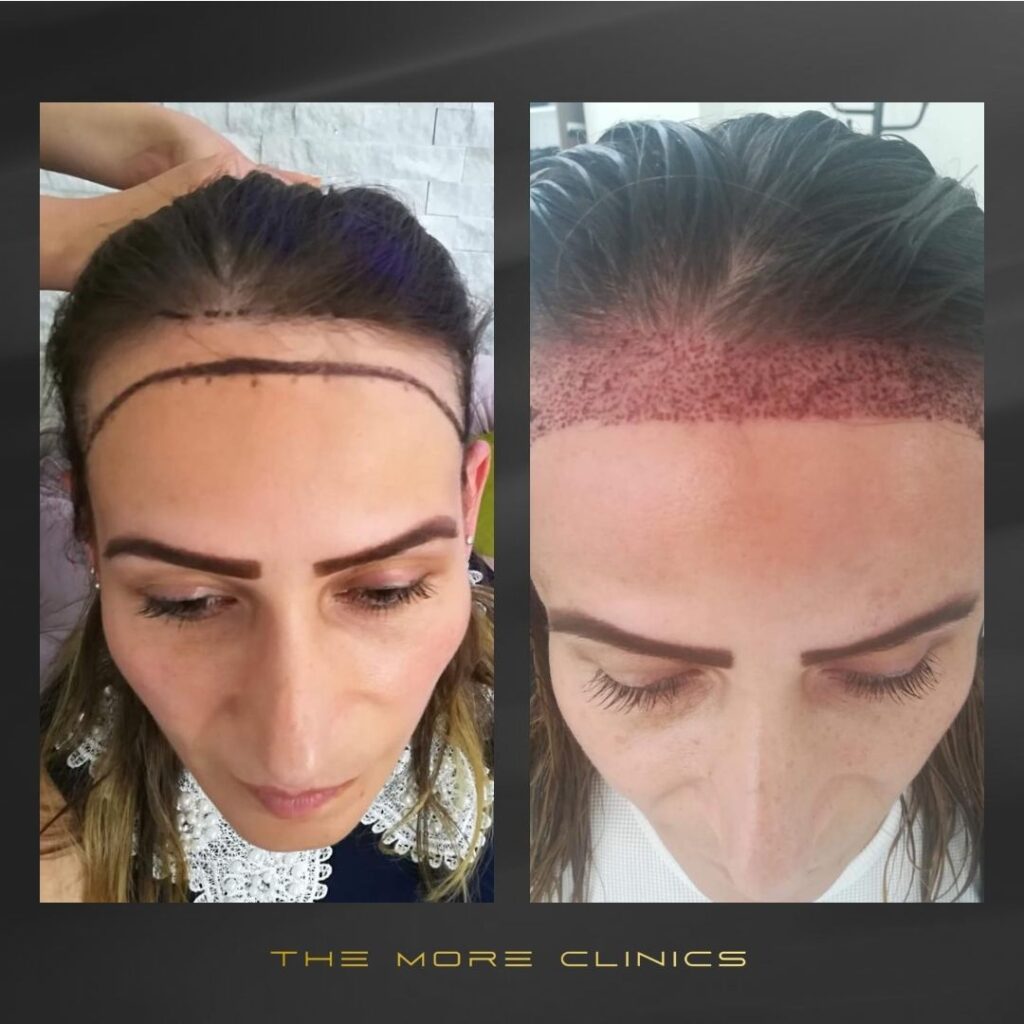
Frequently Asked Questions About Hair Transplant in Antalya
1. What is the Average Cost of a Hair Transplant in Antalya?
The cost can vary depending on the clinic and the extent of the procedure. On average, it ranges from \(1,500 to \)3,000, which is often more affordable compared to prices in other countries.
2. How Long Does the Procedure Take?
The duration depends on the number of grafts needed. Typically, the procedure can take anywhere from 4 to 8 hours. We recommend clearing your schedule for the day to ensure you have ample time.
3. Is a Hair Transplant Painful?
We understand the concern. Most patients report minimal discomfort. Local anaesthesia is used to numb the scalp, so you should not feel pain during the procedure. Post-surgery, painkillers can help manage any soreness.
4. How Long is the Recovery Period?
Recovery times can vary, but most patients can resume normal activities within a week. Full recovery and seeing the final results can take up to 12 months. We suggest following post-op care instructions for a smoother recovery.
5. Are the Results Permanent?
Yes, hair transplants are generally permanent. The transplanted hair follicles are resistant to hair loss, ensuring long-lasting results. It’s important to maintain good scalp care to keep the new hair healthy.
6. Can Anyone Get a Hair Transplant in Antalya?
Not everyone is a candidate. Ideal candidates are those with stable hair loss patterns and sufficient donor hair. It’s best to consult with a specialist to determine suitability.
7. Are There Any Side Effects?
Common side effects include swelling, minor discomfort, and occasional itching. These are usually temporary. We also advise you to watch for any unusual symptoms and report them to your doctor.
8. When Will I Start Seeing Results?
You might see initial growth in about 3 to 4 months. However, noticeable results typically appear between 6 to 12 months post-procedure. Patience is key in this journey.
9. Why Choose Antalya for a Hair Transplant?
Antalya is known for its high-quality medical facilities and experienced surgeons. Plus, the affordability and beautiful destination make it an attractive choice. The combination of a holiday and a hair transplant is quite enticing!
10. What Should I Consider When Choosing a Clinic?
We recommend researching the clinic’s reputation, reading reviews, and checking before and after photos of previous clients. Ensure the clinic is accredited and the surgeons are certified and experienced.
Feel free to ask us any more questions!
Conclusion: Achieving the Best Results for Your Hair Journey
Taking the plunge into the world of hair transplants is a big step, and we want to make sure you get the very best results from your journey. Here’s what we’ve learned:
Research is Key
- Proper research helps us understand everything, from the procedure to choosing the best clinic.
- Read reviews, watch testimonials, and ask for before-and-after pictures.
Choose the Right Clinic
- Antalya boasts several top-notch clinics. Look for ones with accreditations and positive patient feedback.
- A good clinic provides a consultation to help us understand the procedure, costs, and expected results.
We choose the best clinic for you, Don’t Worry.
Understand the Procedure
- Knowing what happens during and after the transplant helps us prepare mentally and physically.
- The process often involves some downtime; planning around it is crucial.
Follow Post-Op Care Instructions
- These directives ensure optimal healing and amazing results.
- Avoid strenuous activities, follow the cleaning regime, and stay out of direct sunlight as much as possible.
Be Patient
- Hair transplants don’t yield instant results. It usually takes several months to see significant changes.
- Staying patient and allowing our body to heal and grow new hair is vital.
Stay in Touch with Your Surgeon
- Regular follow-ups help track progress and address any concerns.
- They can also offer tips and treatments to enhance the growth and health of our new hair.
Maintain a Healthy Lifestyle
- Our overall health affects hair growth. Eating right, exercising, and managing stress can help the process.
- Avoid smoking and limit alcohol intake to boost healing.
Hair transplant in Antalya can be a game-changer for many of us. By being informed, choosing wisely, and following through with care, we can achieve the lush, natural-looking hair we’ve been dreaming of. Let’s embrace the journey together!
GET A FREE CONSULTATION!
Let’s Start Planning Your Treatment %100 Guarantee Results.
